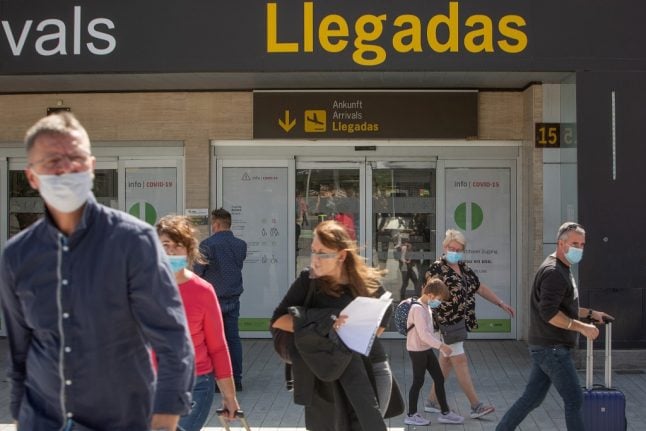Spain’s Health Ministry announced the new policy on Wednesday explaining that it would use European Union criteria to define which countries are considered high risk.
“The basic reference will be the accumulated incidence per 100,000 inhabitants in the past 14 days,” it said, without providing more details.
? España exigirá a los viajeros internacionales de países de riesgo una PCR negativa en las últimas 72 horas
Esta medida se suma a los controles que se llevan a cabo actualmente, como el control de temperatura y el control visual #COVID19
ℹ️ https://t.co/HmXCznzHdo pic.twitter.com/5M69QwY3iv
— Ministerio de Sanidad (@sanidadgob) November 11, 2020
Health Minister Salvador Illa explained that there would be no testing at Spain's land borders but the requirement would be in place at airports.
“We will ask the airlines to collaborate and check for travellers’ PCR (swab) tests before boarding,” Illa said, adding that Spain had no plans to impose mandatory quarantine for foreign arrivals.
UPDATE: More details of the PCR test requirements were published in the State Gazette on November 12th
READ MORE: Which travellers must show negative Covid-19 test on arrival in Spain?
Under the EU system, the highest-risk countries are those with more than 150 cases diagnosed per 100,000 people in the past 14 days, or those with an incidence of more than 150 per 100,000 and with over 4 percent of all tests giving positive results.
This threshold is currently far below Spain’s own infection rates which stands at 600 cases per 100,000 people according to the European Centre for Disease Prevention and Control (ECDC), which lists the infection rates of each country below: 
Until now travellers arriving in Spain only needed to present a passenger locator form, and may be subject to a basic medical check including temperature check but there is no quarantine requirement currently in place.
However, the Canary Islands introduce compulsory negative Covid-19 tests from November 14th, which must be shown by all holidaymakers on arrival at their accomodation.
Spain has adopted measures in line with EU recommendations which means there are effectively no restrictions on those travellers arriving in Spain from EU/UK/ EEA countires but travel is limited from outside the EU unless there are exemptions in place.
For more details read: What are the rules on travelling to Spain?



 Please whitelist us to continue reading.
Please whitelist us to continue reading.
Does this include the land borders?